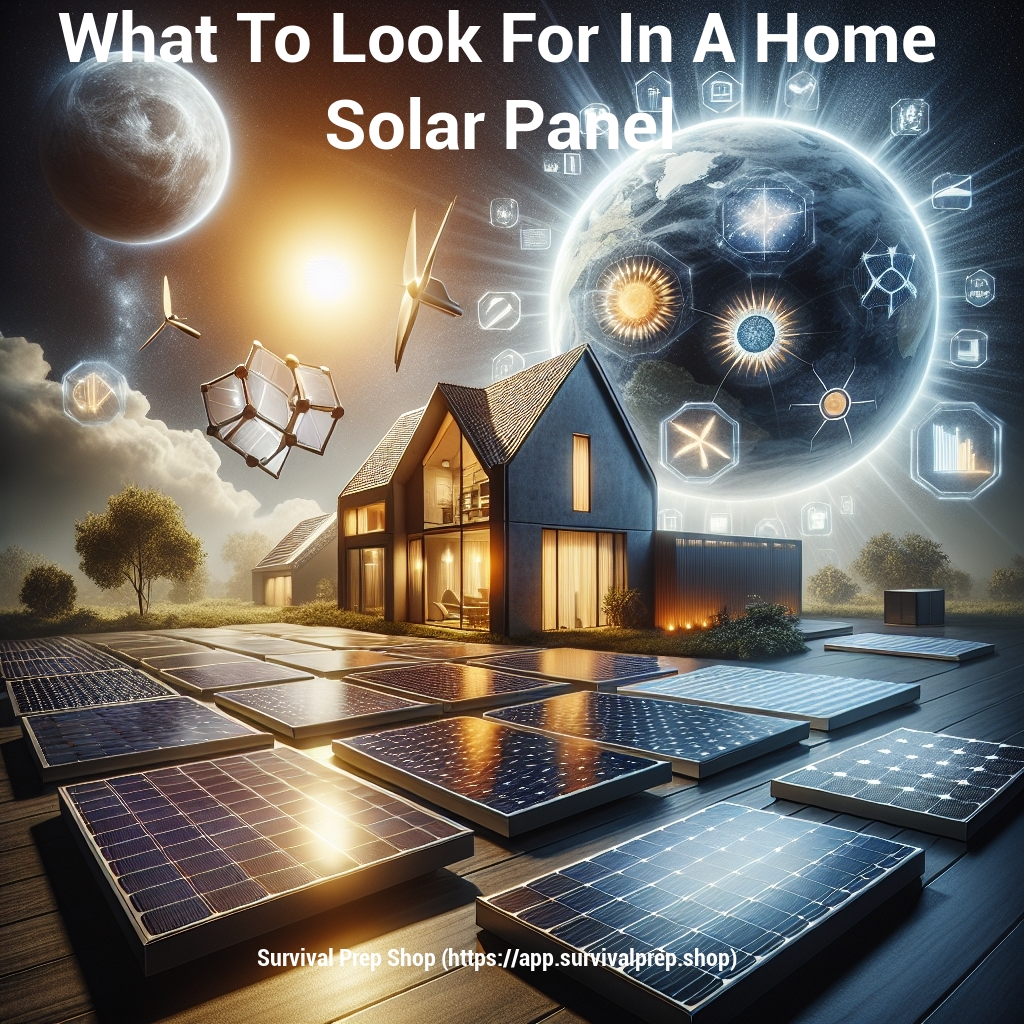
Hello everyone, and welcome to the Survival Prep Shop.
I’m TK, and I’m excited to share my perspectives on today’s vital survival strategies. Just a reminder, these ideas represent my personal experiences on this path of readiness.
It seems as if everything is costing more today than ever before. Everywhere you turn, your pocket is getting tapped for you to fork over more money. Are you like millions of other Americans that are sick and tired of inflation in your energy costs?
If so, you might want to consider switching to solar energy created by using solar panels. You’ll find that not every home solar panel is made alike. They’ll differ in size, cost and energy efficiency.
Some will only last approximately 7 years while others can last for 25. The long lasting panels are not always the ones that cost the most. The best panels to buy are the ones that offer you the highest return electricity rate.
For example, panels that use amorphous silicone take longer to stabilize the amount of energy it produces, and it doesn’t produce as much energy as other silicones. Many of these panels give approximately 5% in return electricity rate.
It takes more panels using amorphous than it does with other silicones, which means more cost to you. While these types of panels might be great for a smaller project, you wouldn’t want to use this type for your home. Plus, they’re just not a good bet if you live in a state where cold weather is an issue.
The amorphous silicone is one of three kinds that you can use. The next kind is polycrystalline. This is one of the most common panels used today. They’re very cost-effective and have a long-lasting history of dependability.
The most popular panel is the monocrystalline silicone. These panels are perfect for colder climates, they’re long lasting, and they have a high return electricity rate. The return electricity rate is one of the important factors that you want to consider when purchasing panels.
The type of solar panels that you set up for your home will make a difference because some of the panels are for use specifically with grid-tied systems. This means that your home is one that’s tied in with a utility company.
Most of the time, you can find systems that are tied to grids that end up costing you less and don’t require a rocket scientist to use. Not only that, but if you end up creating more electricity than you need, your electric company can end up paying you because you’re generating electricity that can end up back in the grid.
There are a few things you’ll want to think about when you want to install a home solar panel. You’ll need to consider how many rainy days your area has versus good sun days. Areas that have a more than normal amount of rainfall aren’t good candidates for solar energy systems.
I hope you walk away from this article feeling a bit more equipped and inspired.
Your engagement means the world to me.
I look forward to our next discussion.
Until then, happy prepping! Thanks again.
TK – Survival Prep Shop
— Don’t forget to check out our YouTube channel — Click here —
